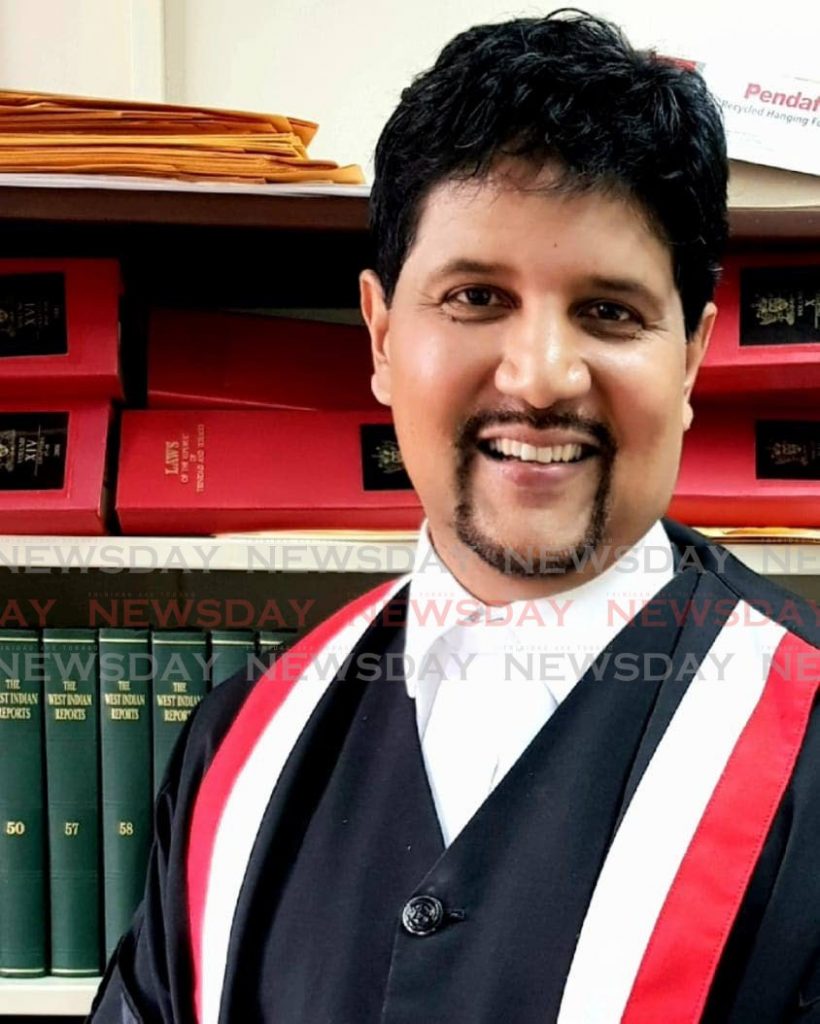Judge slams appointment process for magistrates

A High Court judge has criticised the process of appointing judicial officers, in particular magistrates, to higher positions before they have discharged all their judicial obligations.
He has called for a reform of the process, suggesting that the Judicial and Legal Service Commission (JLSC) should make the “necessary administrative enquiries” to ensure elevated magistrates have no part-heard matters or outstanding reasons to deliver.
“A simple mandatory question, ‘Do you have part-heard matters or outstanding reasons?’ should be asked,” said Justice Frank Seepersad.
He was dealing with a constitutional claim filed by a Canadian construction worker who complained of a magistrate's failure to provide reasons for convicting him so that his appeal could be heard earlier.
Christopher Shair sought compensation for the alleged breach of his rights because his appeal was not listed for over three years and he lost out on the opportunity for a remission of his prison sentence.
Seepersad dismissed his constitutional motion on Tuesday, but not before offering some harsh words on the JLSC's appointment process.
“Evidently more stringent monitoring systems need to be implemented. Breach of statutory obligations has an adverse impact on the administration of justice and such dereliction of duty is unacceptable.
“It is therefore difficult to understand how any judicial officer who fails to efficiently discharge his or her judicial obligations can be viewed as a candidate worthy of elevation to higher judicial office,” Seepersad said.
He was referring to the imbroglio involving the former chief magistrate who was appointed a judge although she had several part-heard magisterial matters.
“It appears that the JLSC has not adjusted its assessment procedure in relation to magistrates who apply for higher office as the instant case demonstrates that appointments continue to be made even though applicants who are judicial officers may not have discharged all their judicial obligations prior to elevation. Such a circumstance invokes alarm and calls into sharp focus the need for urgent reform of the appointment process,” Seepersad said.
He pointed to the Law Association’s report on the judicial appointment reform, saying it appeared no steps had been taken to change the system of appointments.
Shair was convicted on November 24, 2016, by senior magistrate Gillian Scotland and ordered to serve four years’ hard labour for cocaine trafficking. He was also fined.
He filed an appeal but in his claim, Shair said his appeal could only be listed after the magistrates’ reasons were received as part of the record. Eventually, after he filed his constitutional claim in December 2019, Scotland, who was appointed an acting Master on December 28, 2018, provided her reasons, and his appeal came up for hearing on January 23 this year.
His appeal was allowed, and his sentence varied, removing the $20,000 fine. His sentence was also reduced to three and a half years and he was released the same day, having served his time.
In his decision, Seepersad also said there was a need for a comprehensive policy on the listing of appeals where there are no reasons.
According to the Summary Courts Act, magistrates must sign a statement of reasons for an oral decision within 60 days of a notice of appeal being filed. At the time Shair filed his appeal, no reasons were provided.
Seepersad said the practice had developed in TT that appeals are listed in the absence of a magistrate’s reasons.
He suggested the Rules Committee amend the Civil Proceeding Rules as they relate to the listing of appeals where magistrates’ reasons are not provided.
He also chided the administrative inefficiency of the record-keeping system in the lower courts, since the magistrate in Shair’s case said she asked for the transcribed court notes in December, but was told they were not yet ready. She only received them on December 4, 2019. She also said had not been told Shair had appealed his sentence. Seepersad said this was an “indictment.”
In his claim, Shair complained that he expected his appeal would be heard in nine months to a year from the time when he filed his notice of appeal.
He also complained about the poor conditions at the Golden Grove prison. He said he did not get the food and medical treatment recommended for an HIV patient and because of that he suffered weight loss, distress and anxiety.
In dismissing the claim, Seepersad said Shair had not suffered any breach of his constitutional rights, so there was no need to consider monetary compensation.
While he ordered both sides to pay their own costs, he ordered Shair to pay the costs of the writ of habeas corpus he also filed. Seepersad said the fact that Shair had filed an appeal did not change the fact that he was being lawfully detained in prison.
In his judgment, Seepersad had questioned the authority which allowed the acting Master to liaise with the Arima Court for the notes of evidence, saying that "between the 2nd to the 5th December, she was not a magistrate and her provisions of the reasons may well be irregular."
However, a statement from the Judiciary clarified the issue, saying magistrates who were appointed in higher acting positions, their "substantive position will be that of the position held before the acting position arose."
Scotland, while listed as an acting Master, is also still listed as a senior magistrate on the Judiciary's website.
Shair was represented by attorneys Wayne Sturge and Alexia Romero. Michelle Benjamin and Linda Khan represented the Attorney General.

Comments
"Judge slams appointment process for magistrates"